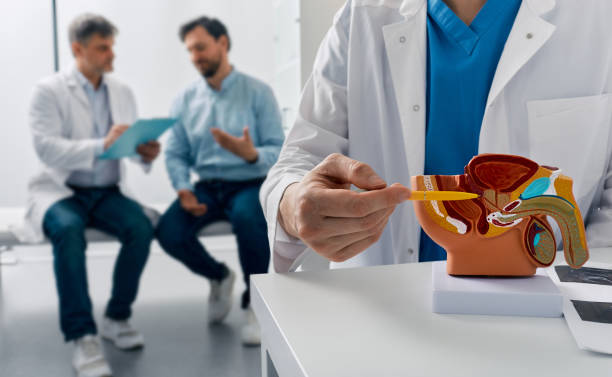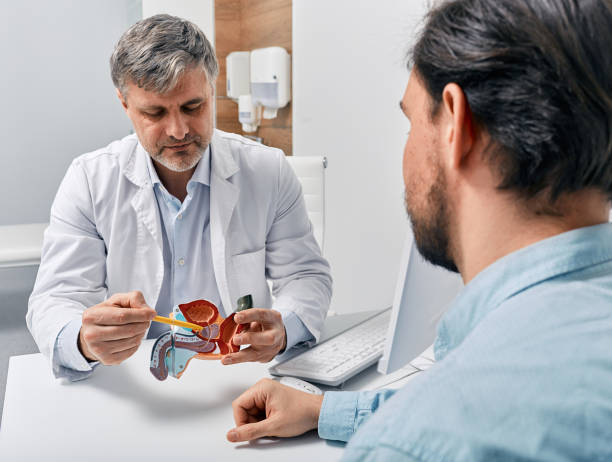Frequent bathroom breaks and that sudden, urgent need to go? It might not just be about drinking too much water. For men, these could be signals of a bigger problem – your prostate health could be at risk. Don’t brush it off.
The Silent Danger: Misunderstanding Prostate Health

Many men know the prostate is important, but far too often, they mistake serious warning signs for something minor. This common misjudgment leads to late diagnoses of prostate cancer – a risk you can’t afford to ignore.
Why Prostate Cancer Slips Under the Radar
Here’s the tricky part: early prostate cancer symptoms look a lot like benign prostatic hyperplasia (BPH), a non-cancerous enlargement of the prostate. Both conditions can make you pee more often or more urgently, so it’s easy to chalk it up to “just getting older.” But that’s where the danger lies – dismissing early signs can let cancer grow unnoticed.
Red Flags You Shouldn’t Ignore
As the condition worsens, more serious symptoms start to pop up, including:
- Trouble emptying your bladder
- Painful urination (burning or discomfort)
- Blood in your urine (this is a big one – don’t wait!)
- Weak or interrupted urine stream
- Bone pain (if the cancer has spread)
These aren’t just “annoying” signs. They could be your body’s way of telling you something’s seriously wrong. Don’t wait – if you notice any of these, see a doctor right away.
Is Prostate Cancer a Death Sentence?
The word “cancer” is terrifying, but here’s the good news: prostate cancer has one of the highest survival rates if caught early. Even in more advanced cases, modern treatments can help you live a long, healthy life with the right care.
Your Treatment Options: There’s Hope
Depending on how far the cancer has progressed, there are several options to tackle it:
- Surgery: If the cancer is still localized, surgery to remove the prostate can be a cure.
- Radiation Therapy: For those who can’t undergo surgery, radiation is a highly effective alternative.
- Hormonal Therapy: This treatment controls cancer by reducing testosterone, which fuels its growth.
- Chemotherapy: For advanced cases, chemotherapy targets and destroys cancer cells.
Early detection gives you the best shot at beating cancer. Don’t ignore the signs – your future could depend on it.
Prostate Cancer Prevention: What You Can Do
Prostate cancer doesn’t have a clear cause, but there are some factors you can keep an eye on, and lifestyle changes you can make to protect yourself.
Who’s Most at Risk?
- Men over 50: Age is a major factor.
- Men with a family history: If your father or brother had prostate cancer, your risk is higher.
- High PSA levels: PSA (Prostate-Specific Antigen) testing is critical. If your levels are high, you need to take action – fast.

For men in high-risk groups, regular PSA screenings are a must. Don’t let embarrassment stand in the way of your health!
Easy Lifestyle Tips to Protect Your Prostate
Want to keep your prostate in top shape? Here are some simple, effective habits to adopt:
- Stay hydrated: Water keeps your urinary system running smoothly.
- Move your body: Regular exercise lowers your overall cancer risk.
- Pee when you need to: Don’t hold it – it puts stress on your bladder and prostate.
- Take breaks: Sitting for long periods can harm your prostate health. Get up and move!
Taking control of your health starts with small changes. Combine these with regular check-ups, and you’re giving yourself the best chance to avoid serious prostate issues.
